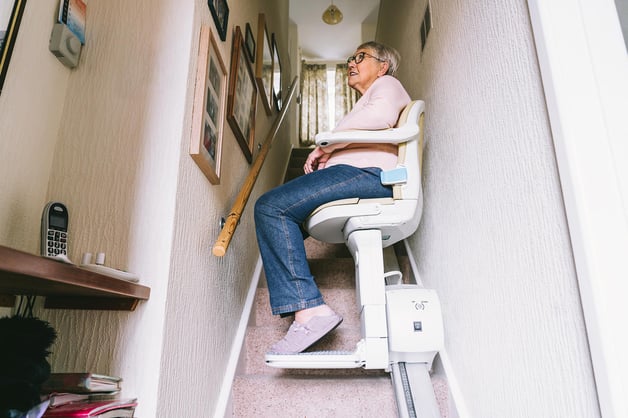
Introduction
In an increasingly aging society, ensuring mobility and independence for individuals with limited physical capabilities becomes paramount. Stairlifts, innovative devices designed to navigate staircases effortlessly, have emerged as an invaluable solution for those seeking a safe and efficient way to move between different levels of their homes. This article delves into the world of stairlifts, exploring their various types – from straight and curved to perch and bariatric models – and highlighting their benefits in enhancing quality of life.
Straight Stairlifts: Simple Yet Effective
Straight stairlifts are the most common and straightforward type, designed for use on staircases without curves or bends. They offer a practical solution for individuals who struggle with climbing stairs due to age, disability, or injury. Straight stairlifts are typically installed on a single rail along the length of the staircase, providing a smooth ride up and down without any disruptions.
Benefits:
- Easy installation, as they require minimal modifications to the staircase.
- Cost-effective compared to more complex models.
- Suitable for most homes with standard straight staircases.
Curved Stairlifts: Navigating Complexity
Homes with curved or spiral staircases require a specialized solution, and that's where curved stairlifts shine. These models are custom-built to fit the unique shape of the staircase, ensuring a smooth and safe ride around corners, bends, and intermediate landings.
Benefits:
- Customizable to fit a variety of curved staircase designs.
- Preserve the aesthetic appeal of the home, as they blend seamlessly with the staircase.
- Provide a comfortable and secure ride on complex stair layouts.
Perch Stairlifts: A Seated Alternative
For individuals who find sitting uncomfortable or have issues bending their knees, perch stairlifts offer an alternative design. These lifts allow users to maintain a semi-standing position during transit, providing them with a greater sense of mobility while still ensuring safety.
Benefits:
- Ideal for users with limited knee or hip flexibility.
- Suitable for narrow staircases where a full seat might not fit.
- Easier to get on and off for those with mobility challenges.
Bariatric Stairlifts: Enhancing Accessibility for All
Bariatric stairlifts are engineered to support individuals with obesity or larger body sizes. These models feature reinforced structures, wider seats, and higher weight capacities to ensure safe and comfortable transportation up and down stairs.
Benefits:
- Designed to accommodate heavier individuals, enhancing accessibility for all.
- Reinforced construction ensures durability and safety.
- Available for both straight and curved staircases.
Conclusion
Stairlifts have revolutionized the way individuals with limited mobility navigate their homes. From the simplicity of straight stairlifts to the complexity of curved designs, and the unique solutions presented by perch and bariatric models, these devices provide a lifeline to independence. As technology continues to advance, stairlifts are becoming more versatile, safe, and seamlessly integrated into various home designs. By choosing the right type of stairlift, individuals can maintain their freedom, confidence, and overall quality of life.
